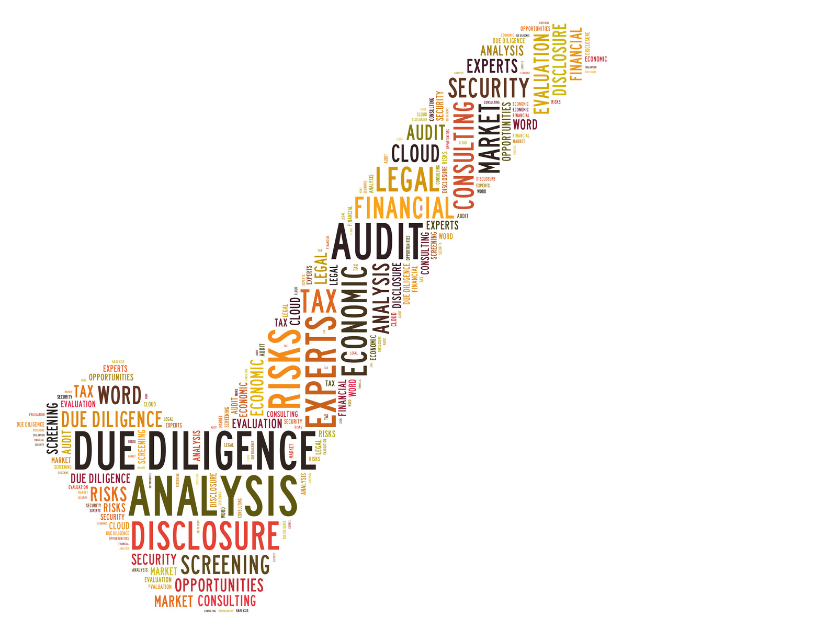When you're new to the world of property development, pushing the button to do a deal by yourself is a hugely scary thing.
Which is why it can be a good strategy to do a joint venture as your first deal.
If you're thinking of taking that path, what do you need to know before you start?
First up, what is a joint venture? It's two or more parties pooling resources to complete a specific project. A joint venture agreement is used to outline the roles and responsibilities of each partner. Money partners provide capital, while other partners may contribute expertise, experience, and operational management.
Given that you're a newbie, it's pretty clear you're most likely to be on the money side of that equation.
And look, if you have the financial resources, providing the money to someone with knowledge is a great way to learn the ropes of a property development deal. Most developers will happily keep you up to date with what they're doing and why, allowing you to learn as the deal progresses.
If they're not willing to do that, by the way, then find someone who is. There are money investors who are perfectly happy being hands off in a deal, but as a newbie, learning is a crucial element for you.
It's Your Responsibility
Time for some tough love here. Property development involves risk. Much as we'd all love to find deals with zero risk and maximum return, that's flying pigs territory.
Having said that, just because risk exists, that's not the same thing as things actually going wrong. Smart developers identify risks and then find ways to mitigate or avoid them.
So be realistic in your expectations. But on the flip side, don't invest money you can't afford to lose, either. I'm not saying that losing money is ever a good thing - it's not. But if losing the money is going to bankrupt you, maybe joint ventures are not a good idea.
Bottom line is that it's your responsibility if you choose to move forward. No developers wants to see a project crash and burn, because they're not making money in that scenario either. But shit happens, and you need to be clear that it's your choice to get involved.
 Conduct Due Diligence
Conduct Due Diligence
Moving on from the tough love! Yes, it's your responsibility to accept risk, but that doesn't mean you should just throw money at a deal without doing your due diligence first.
Before entering a JV, thoroughly research potential partners. Review their financial stability, project history, and references. This step is critical to ensure you’re partnering with reputable and capable individuals.
Remember, you're looking for a JV because you want to learn from the knowledge partner. Which means there's no point doing a JV with someone who's just as new as you are.
Also keep in mind that not every project is a shining example of things going perfectly and making loads of money. What you're looking for is how the project was conducted, and the character of the developer in terms of the way they handled the ugly bits.
You also need to do your due diligence on the project. This is probably the hardest part if you're new. Understanding deals requires a good level of understanding.
It ends up being a chicken and egg scenario - you need knowledge to understand the deal, but you want to do a deal to gain knowledge.
As a minimum you need to be able to review a feasibility of the project and fact check the numbers.
Now, if you really are new and the word "feasibility" causes you to break out in a cold sweat, don't panic. This is where having a mentor can be a huge advantage. It's one of the big reasons my Property Development Formula course isn't just a weekend bootcamp - it includes ongoing mentorship sessions.
Because the brutal truth is that I have never seen an Information Memorandum come from any developer seeking money that has not shown it was profitable. And yet many projects struggle.
Do The Paperwork
 I can't stress enough how important it is to have a written joint venture agreement. Honestly, I don't care how much you love and trust someone because they're a family member or close friend - put it in writing.
I can't stress enough how important it is to have a written joint venture agreement. Honestly, I don't care how much you love and trust someone because they're a family member or close friend - put it in writing.
Realistically, you'll spend some money for the legal stuff, and with any luck it will lurk in a file somewhere gathering dust for the duration of the project. That's a great outcome!
Because if you need to pull it out of the file that almost certainly means something isn't working out right and there's a dispute or disagreement happening.
It's a bit like insurance. Nobody likes paying out money and doing the research to get the best insurance. But if something happens? You're incredibly glad you have it.
A JV agreement is the same. Consult legal professionals to create a comprehensive agreement outlining each partner’s responsibilities, profit distribution, decision-making processes, and exit strategies. This document is crucial for protecting your interests.
Always be aware, though, that legal professionals are a cynical bunch and tend to see a threat in every shadow. It's highly likely that they're going to scare the beejeezus out of you by telling you what a huge risk you're taking, and perhaps even strongly suggest you don't do it.
That's where you circle back to taking responsibility. Yes, listen to what they have to say, because sometimes the risk they're identifying may be big enough to halt the JV. But always keep in mind that their advice is coloured by a high level of risk aversion.
Bottom line, becoming a money partner in a property development joint venture can be a rewarding and educational strategy. By sharing risks, pooling resources, and leveraging diverse expertise, you can learn the complexities of the industry more effectively.
When you choose the right partners and a solid strategy, you can create a solid foundation for your future property development deals. Just make sure you go in with your eyes wide open.
Which is why it can be a good strategy to do a joint venture as your first deal.
If you're thinking of taking that path, what do you need to know before you start?
First up, what is a joint venture? It's two or more parties pooling resources to complete a specific project. A joint venture agreement is used to outline the roles and responsibilities of each partner. Money partners provide capital, while other partners may contribute expertise, experience, and operational management.
Given that you're a newbie, it's pretty clear you're most likely to be on the money side of that equation.
And look, if you have the financial resources, providing the money to someone with knowledge is a great way to learn the ropes of a property development deal. Most developers will happily keep you up to date with what they're doing and why, allowing you to learn as the deal progresses.
If they're not willing to do that, by the way, then find someone who is. There are money investors who are perfectly happy being hands off in a deal, but as a newbie, learning is a crucial element for you.
It's Your Responsibility
Time for some tough love here. Property development involves risk. Much as we'd all love to find deals with zero risk and maximum return, that's flying pigs territory.
Having said that, just because risk exists, that's not the same thing as things actually going wrong. Smart developers identify risks and then find ways to mitigate or avoid them.
So be realistic in your expectations. But on the flip side, don't invest money you can't afford to lose, either. I'm not saying that losing money is ever a good thing - it's not. But if losing the money is going to bankrupt you, maybe joint ventures are not a good idea.
Bottom line is that it's your responsibility if you choose to move forward. No developers wants to see a project crash and burn, because they're not making money in that scenario either. But shit happens, and you need to be clear that it's your choice to get involved.
Moving on from the tough love! Yes, it's your responsibility to accept risk, but that doesn't mean you should just throw money at a deal without doing your due diligence first.
Before entering a JV, thoroughly research potential partners. Review their financial stability, project history, and references. This step is critical to ensure you’re partnering with reputable and capable individuals.
Remember, you're looking for a JV because you want to learn from the knowledge partner. Which means there's no point doing a JV with someone who's just as new as you are.
Also keep in mind that not every project is a shining example of things going perfectly and making loads of money. What you're looking for is how the project was conducted, and the character of the developer in terms of the way they handled the ugly bits.
You also need to do your due diligence on the project. This is probably the hardest part if you're new. Understanding deals requires a good level of understanding.
It ends up being a chicken and egg scenario - you need knowledge to understand the deal, but you want to do a deal to gain knowledge.
As a minimum you need to be able to review a feasibility of the project and fact check the numbers.
Now, if you really are new and the word "feasibility" causes you to break out in a cold sweat, don't panic. This is where having a mentor can be a huge advantage. It's one of the big reasons my Property Development Formula course isn't just a weekend bootcamp - it includes ongoing mentorship sessions.
Because the brutal truth is that I have never seen an Information Memorandum come from any developer seeking money that has not shown it was profitable. And yet many projects struggle.
Do The Paperwork
Realistically, you'll spend some money for the legal stuff, and with any luck it will lurk in a file somewhere gathering dust for the duration of the project. That's a great outcome!
Because if you need to pull it out of the file that almost certainly means something isn't working out right and there's a dispute or disagreement happening.
It's a bit like insurance. Nobody likes paying out money and doing the research to get the best insurance. But if something happens? You're incredibly glad you have it.
A JV agreement is the same. Consult legal professionals to create a comprehensive agreement outlining each partner’s responsibilities, profit distribution, decision-making processes, and exit strategies. This document is crucial for protecting your interests.
Always be aware, though, that legal professionals are a cynical bunch and tend to see a threat in every shadow. It's highly likely that they're going to scare the beejeezus out of you by telling you what a huge risk you're taking, and perhaps even strongly suggest you don't do it.
That's where you circle back to taking responsibility. Yes, listen to what they have to say, because sometimes the risk they're identifying may be big enough to halt the JV. But always keep in mind that their advice is coloured by a high level of risk aversion.
Bottom line, becoming a money partner in a property development joint venture can be a rewarding and educational strategy. By sharing risks, pooling resources, and leveraging diverse expertise, you can learn the complexities of the industry more effectively.
When you choose the right partners and a solid strategy, you can create a solid foundation for your future property development deals. Just make sure you go in with your eyes wide open.
